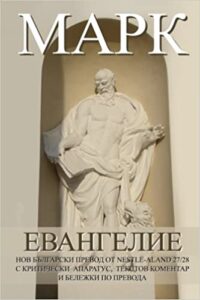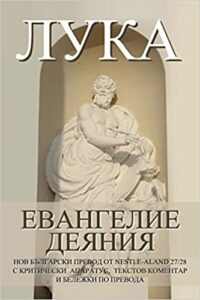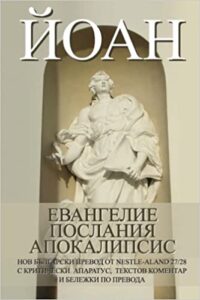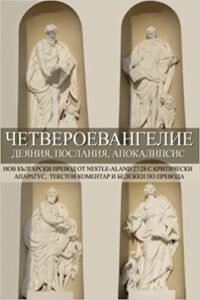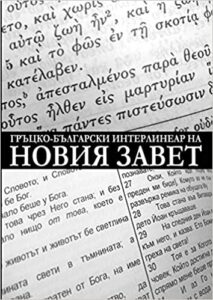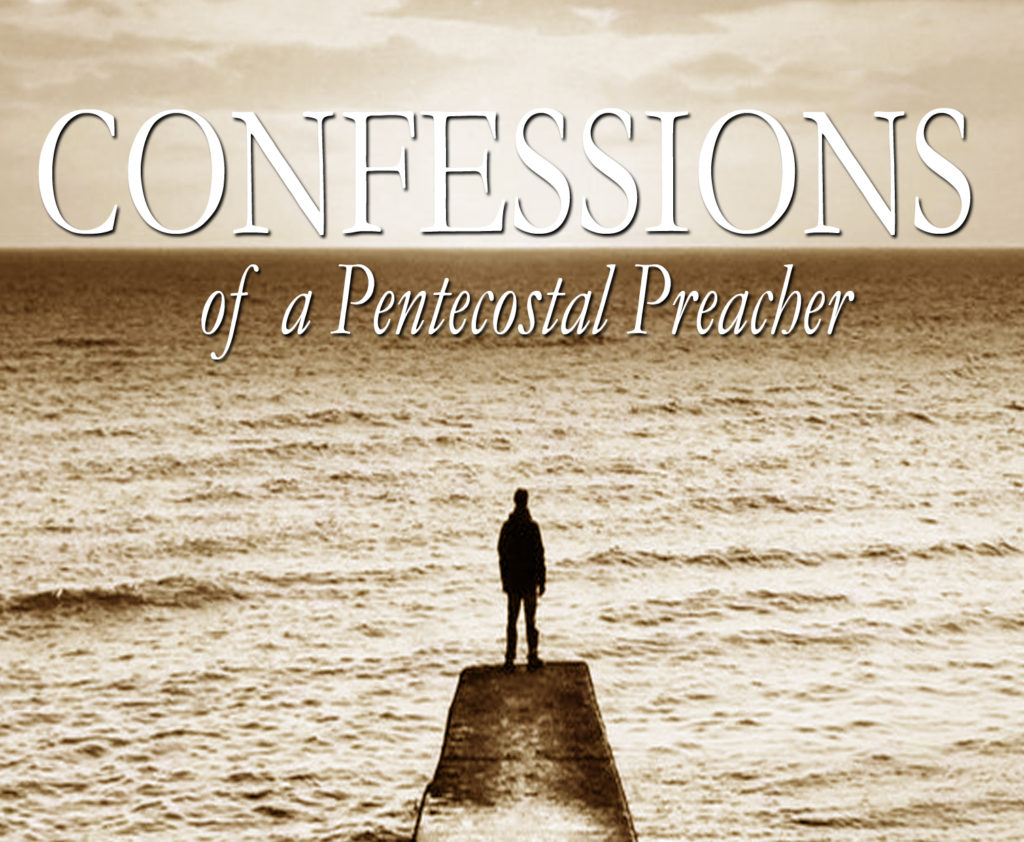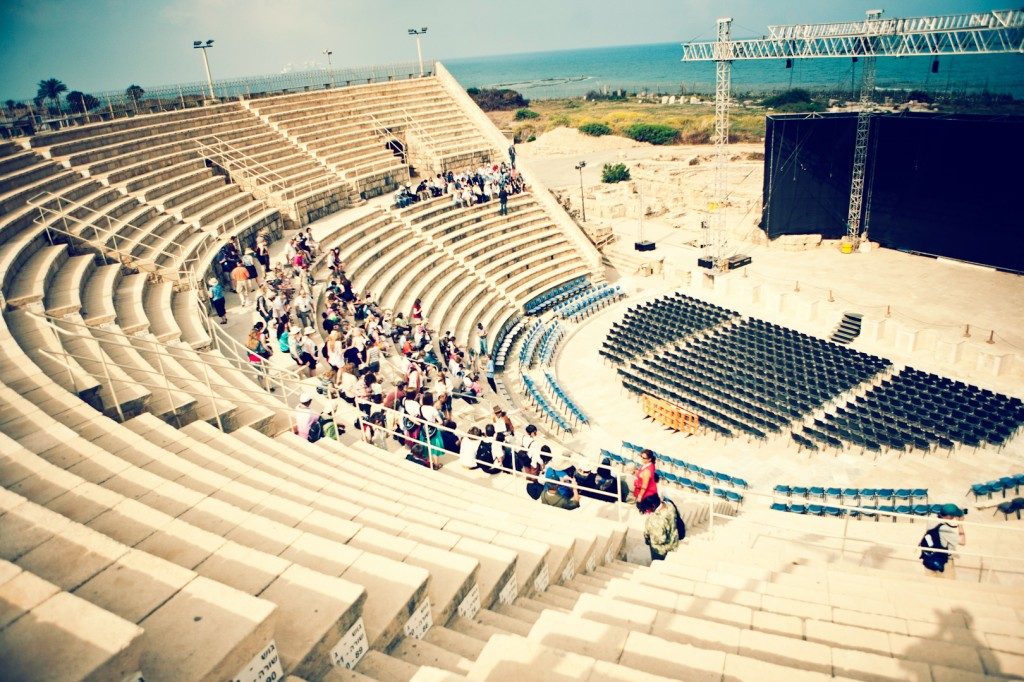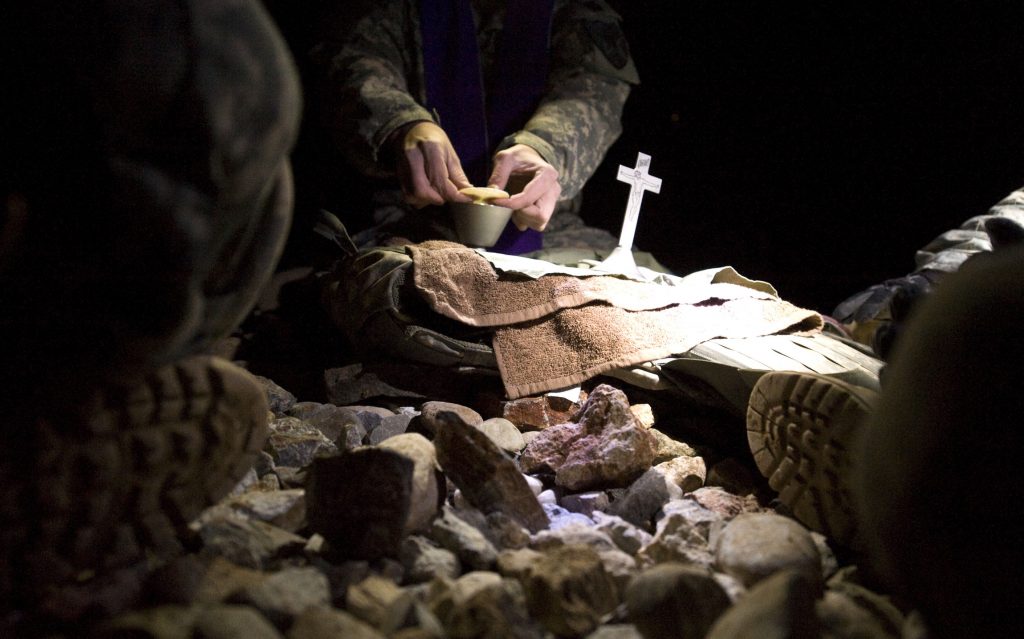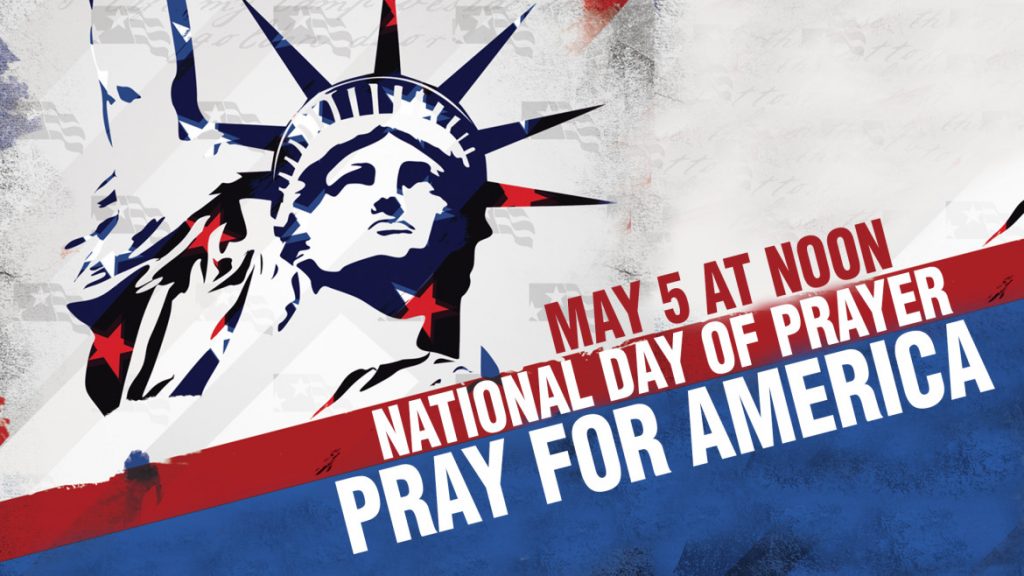30 Years of Miracles: 2016
The year 2016 in many ways was a preparatory one. We had completed several major milestones in Bulgaria in the last two years. Now plans that have been set in motion for our ministry.
First off, the 500th Anniversary of the Reformation planned for 2017 marked a key conclusion of a long translation journey. After publishing the New Bulgarian Translation of the New Testament in small portions in 2007, it was time to put it all together. We had already printed, both in Europe and the Americas a complete Tetraevangelion in the Bulgarian vernacular:
- John and the Johannine Corpus (Gospel, Epistles and Apocalypse)
- Mark
- Matthew
- And finally, the Gospel of Luke and Acts.
Also in the preparatory works for 2016 were the Bulgarian churches in Arizona and California following our AZS quarter vision and the Divine Connections.TV. But the real works were still in the making. The Lord had in store even more we had no clue about. After a full year of preparation in 2016, the year 2017 was going to start with a major series of Last Days Revivals.
This book should have been published seven years ago in 2013. Its original subtitle was going to read “7 Years in Bulgaria.” Instead, it took seven years to finish it with all documents, research archives and new cases. Now, it is finally here and it finally reads like a story – not just choppy interviews, deposition documented testimonies or court records, but a story of struggle, strength and solitude. A story of life and a story of us.
1995-96 The establishing of the first Bulgarian Church of God in Chicago and its first split
2000-01 The contracted building of the ministry center for the Central Church of God in Sofia
2002-03 The church split in Southaven and what followed next
2005-06 The post-communist split of the Bulgarian Church of God and consecutive sub-denominations
2010-13 The social media network that cost us millions (of souls)
2016 The vote that forced to kill a church
2019-20 The sale of the ministry center for the Central Church of God in Bulgaria
READ: CONFESSIONS of a Pentecostal Preacher
CONFESSIONS of a Pentecostal Preacher
To Mark Alan
We know not why good people have to die,
but we do know we must tell their story…
Chapter I: Beyond the Church and into God
Be without fear in the face of your enemies.
Be brave and upright that God may love thee.
Speak the truth always, even if it leads to your death.
Safeguard the helpless and do no wrong.
That is your oath.
~Kingdom of Heaven (2005)
Separation of church from politics of false religiosity
The phone rang heavy and long. It was 4 AM in Bulgaria, but I was already up. A friend on the other end of the line was calling from South Carolina with a warning of some bad situation. The following morning, I was going to be contacted by the Director questioning why we were ministering in churches outside of our denomination.
The truth was we had ministered in some 300 local churches across the Balkan country of Bulgaria crossing all denominational boundaries and gathering youth from just about every confession. God had used us not only to reach and minister and to lead, but to step into an untouched spiritual realm, to undertake an unfamiliar ministry paradigm and to approach a brand new dimension of reality where He was to be the center of it all. And we had obeyed without questions. Now it was time to pay the price!
* * *
Our denomination, the one to which I remain both critically loyal and loyally critical, spreads over some five generations. Through its century old existence, the struggles and tension between theology and praxis has been in the center. And there, in the very essence of Pentecostalism itself, while some are always celebrating and being celebrated in the office or temple, others are always pushed in the periphery of normal life, hidden from the world behind closed doors and seeking a much deeper experience with God.
These modern day mystics are not only forgotten, but often forbidden. For their riot for righteousness cannot be conceived, contained and controlled by the religious norms of organized officiality. They speak as prophets to a world they so fervently try to escape from, about a reality that does not exist in the normal believer’s mindset. A stage of spirituality that cannot be preached without being lived in the social existence. And a relationship of God that goes far beyond common relationism and into God himself. That God, Who does not abide in offices and temples, but on the cross outside of the city walls…
But I knew nothing of this until that cold winter morning when the phone rang through darkness of the night. Knowing what is coming, rarely changes what we have done to get here.
7 Years in Bulgaria: CONFESSIONS of a Pentecostal Preacher
by Dony K. Donev, D.Min.
Upcoming Releases for United States (October, 2020)
Top 10 Ministry Projects Completed in 2016
- Nehemiah Inductive Bible Study Series
- 25 Years of Miracles Series, online e-book publication
- 30 Days of Prayer in September Event
- Published Second Edition of Complete Greek-Bulgarian Interlinear of the New Testament
- Bulgarian Bible website, Bibliata.com celebrates 20 years in online ministry with the Great Read through the whole Bible
- Published expanded edition of Cooking Traditions of Bulgaria
- 10 Year Anniversary of the Bulgarian Chaplaincy Association
- Launched BulgarianCooking.com to feature authentic Bulgarian recipes
- Partnered with new Bulgarian Church in Atlanta area
- Comprehensive report on the state of Bulgarian Chaplaincy update for NATO’s Manfred Wörner Foundation
Bulgaria’s 2016 Presidential Election and Referendum Go to Runoff Ballot
Some 6.8 million Bulgarians are eligible to choose their new president who will replace incumbent Rosen Plevneliev after his five-year term ends in January. The election campaign focused mainly on the future of the European Union, relations with Russia and the threats from a possible rise in migrant inflows from neighboring Turkey
For the first time, voting in the presidential elections will be compulsory.
A tight race as expected between the two frontrunners, Parliament Speaker Tsetska Tsacheva, nominated by main ruling party GERB, and former Air Force Commander Maj Gen Rumen Radev, endorsed by the main opposition force, the Bulgarian Socialist Party (BSP). Tsacheva, pointed by Prime Minister Boyko Borisov in October, is expected to win the first round by a narrow margin.
- Gallup International has projected a 26.7% support for Radev, while the candidate of the main ruling GERB party, Tsetska Tsacheva, has ranked second, having mastered 22.5%
- Alpha Research, another pollster offering exit poll results, suggests Radev has garnered 24.8%, with Tsacheva’s support at 23.5%.
- According to Alpha Research, third, lagging far behind, is nationalist candidate Krasimir Karakachanov, at 13.6%.
- Fourth, surprisingly, comes businessman Veselin Mareshki (9.3%) who runs as an independent candidate, followed by Reformist Bloc’s Traycho Traykov at 7.1%.
 Government Elections in Bulgaria (2005-2015)
Government Elections in Bulgaria (2005-2015)
2005 Parliamentary Elections
2006 Presidential Elections
2007 Municipal Elections
2009 Parliamentary Elections
2009 European Parliament elections
2011 Presidential Elections
2011 Local Elections
2013 Early parliamentary elections
2014 Early Parliamentary Elections
2015 Municipal Elections
25 Years after Communism…
25 years in 60 seconds at the red-light…
I’m driving slowly in the dark and raining streets of my home town passing through clouds of car smoke. The gypsy ghetto in the outskirts of town is covered with the fog of fires made out of old tires burning in the yards. And the loud music adds that grotesque and gothic nuance to the whole picture with poorly clothed children dancing around the burnings.
The first red light stops me at the entrance to the “more civilized” part of the city. The bright counter right next to it slowly moves through the long 60 seconds while tiredly walking people pass through the intersection to go home and escape the cold rain. The street ahead of me is already covered with dirt and thickening layer of sleet.
This is how I remember Bulgaria of my youth and it seems like nothing has changed in the past 25 years.
The newly elected government just announced its coalition cabinet – next to a dozen like it that had failed in the past two decades. The gas price is holding firmly at $6/gal. and the price of electricity just increased by 10%, while the harsh winter is already knocking at the doors of poor Bulgarian households. A major bank is in collapse threatening to take down the national banking system and create a new crisis much like in Greece. These are the same factors that caused Bulgaria’s major inflation in 1993 and then hyperinflation in 1996-97.
What’s next? Another winter and again a hard one!
Ex-secret police agents are in all three of the coalition parties forming the current government. The ultra nationalistic party called “ATTACK” and the Muslim ethnic minorities party DPS are out for now, but awaiting their move as opposition in the future parliament. At the same time, the new-old prime minister (now in his second term) is already calling for yet another early parliamentarian election in the summer. This is only months after the previous elections in October, 2014 and two years after the ones before them on May 2013.
Every Bulgarian government in the past 25 years has focused on two rather mechanical goals: cardinal socio-economical reforms and battle against communism. The latter is simply unachievable without deep reformative change within the Bulgarian post-communist mentality. The purpose of any reform should be to do exactly that. Instead, what is always changing is the outwardness of the country. The change is only mechanical, but never organic within the country’s heart.
Bulgaria’s mechanical reforms in the past quarter of a century have proven to be only conditional, but never improving the conditions of living. The wellbeing of the individual and the pursuit of happiness, thou much spoken about, are never reached for they never start with the desire to change within the person. For this reason, millions of Bulgarians and their children today work abroad, pursuing another life for another generation.
The stop light in front of me turns green bidding the question where to go next. Every Bulgarian today must make a choice! Or we’ll be still here at the red light in another 25 years from now…
Special celebration for Russian Holocaust Survivors LIVE from Israel 24-25 September 2016
Webcast Times:
Saturday 24 September: 16.45 (UK) / 18.45 (Israel)
Sunday 25 September: 17.00 (UK) / 19.00 (Israel)
Please pray for these services that God would provide protection, guidance, wisdom and peace; that there would be no hindrance or disturbance that would distract attendees from hearing and receiving the Good News.
The Road Ahead for the Master’s of Chaplaincy Ministry Program (2016-2020)
 We are proud to announce that the Master’s of Chaplaincy Ministry Program, we designed and launched in Bulgaria in 2006, has been selected to be part of the Social Service Program of New Bulgarian University. After being for years a valuable part of the regular curriculum of the Bulgarian Evangelical Theological Institute and the St. Trivelius Institute in the capital Sofia, the chaplaincy program has received the highest level of recognition as successful graduates will be finally able to receive government recognized degrees and apply their knowledge and training in chaplaincy on a professional level. The chaplaincy program can also serve within the Integration Proposal of local NATO programs and be instrumental in dealing with the enormous wave of Middle East migrants crossing through Bulgaria today.
We are proud to announce that the Master’s of Chaplaincy Ministry Program, we designed and launched in Bulgaria in 2006, has been selected to be part of the Social Service Program of New Bulgarian University. After being for years a valuable part of the regular curriculum of the Bulgarian Evangelical Theological Institute and the St. Trivelius Institute in the capital Sofia, the chaplaincy program has received the highest level of recognition as successful graduates will be finally able to receive government recognized degrees and apply their knowledge and training in chaplaincy on a professional level. The chaplaincy program can also serve within the Integration Proposal of local NATO programs and be instrumental in dealing with the enormous wave of Middle East migrants crossing through Bulgaria today.
In the beginning of the 21st century in Bulgaria, law and chaplaincy meet on the road to democracy. But before chaplaincy could be legalized completely and endorsed by the state to its full functionality, several changes must be undergone. Some of them are:
- Legal provision allowing chaplains to work as staff in the army, which guarantees the equal presence of protestant chaplains as well.
- The approval, acceptance and implementation of a NATO based model for chaplaincy within the structures of the Bulgarian Army.
- Periodical and systematic educational strategy toward chaplaincy workers among Bulgarian evangelicals.
- A paradigm for cooperation of Bulgarian chaplains from various ethnic, religious and cultural backgrounds.
- Further research publications to enhance the efficiency of chaplaincy within the Bulgarian national context.
Also important [click to read]:
- U.S. Department of State recognizes our chaplaincy efforts in Bulgaria
- Bulgarian Chaplaincy Association: Integration Proposal with Local NATO Programs
- Bulgarian Chaplaincy Association: Vision and Resolution
- Chronology of our role and involvement in developing Church of God chaplaincy in Bulgaria since 2001
- Master’s of Chaplaincy Ministry Program in Bulgaria Reflections
- The Past Decade of Chaplaincy in Bulgaria (2006-2016)
- Related Publications and Presentations by Cup & Cross Ministries International
Establishment of the Bulgarian Chaplaincy Association (2001-2006)
 We are proud to announce that the Master’s of Chaplaincy Ministry Program, we designed and launched in Bulgaria in 2006, has been selected to be part of the Social Service Program of New Bulgarian University. After being for years a valuable part of the regular curriculum of the Bulgarian Evangelical Theological Institute and the St. Trivelius Institute in the capital Sofia, the chaplaincy program has received the highest level of recognition as successful graduates will be finally able to receive government recognized degrees and apply their knowledge and training in chaplaincy on a professional level. The chaplaincy program can also serve within the Integration Proposal of local NATO programs and be instrumental in dealing with the enormous wave of Middle East migrants crossing through Bulgaria today.
We are proud to announce that the Master’s of Chaplaincy Ministry Program, we designed and launched in Bulgaria in 2006, has been selected to be part of the Social Service Program of New Bulgarian University. After being for years a valuable part of the regular curriculum of the Bulgarian Evangelical Theological Institute and the St. Trivelius Institute in the capital Sofia, the chaplaincy program has received the highest level of recognition as successful graduates will be finally able to receive government recognized degrees and apply their knowledge and training in chaplaincy on a professional level. The chaplaincy program can also serve within the Integration Proposal of local NATO programs and be instrumental in dealing with the enormous wave of Middle East migrants crossing through Bulgaria today.
T he Bulgarian Chaplaincy Association was envisioned in the summer of 2001 to unite all underground chaplaincy workers within the territory of Bulgaria. This included several ministries already active in Bulgaria serving in various contexts like military, healthcare, benevolence, jail system and commercial marine. The main goal was to establish a context in which all of these ministries could come together and be represented before the Bulgarian churches and government.
he Bulgarian Chaplaincy Association was envisioned in the summer of 2001 to unite all underground chaplaincy workers within the territory of Bulgaria. This included several ministries already active in Bulgaria serving in various contexts like military, healthcare, benevolence, jail system and commercial marine. The main goal was to establish a context in which all of these ministries could come together and be represented before the Bulgarian churches and government.
Although various other projects in the area of Bulgarian chaplaincy had been undertaken in previous years, the foundation initiative was formed in response to an invitation of the Church of God Chaplaincy Commission to hold a training seminar in the National Palace in the capital, Sofia in the fall of 2001. Due to the September 11th crises, the seminar was postponed and held February 16-23, 2002 under the patronage of the Bulgarian Church of God. More than 60 people, actively involved in military, hospital and prison ministries, students and church members, attended the lectures. The seminar was a stepping stone for the development of the Bulgarian Chaplaincy Association. Similar seminars were held consecutively in 2003-2004 in various locations.
The following strategic actions continued the endeavor. On August 13, 2005 a regional meeting in the Sliven area discussed the implementation of future strategies in the light of NATO’s decision to place airbases on Bulgarian soil. Individual and group meetings with chaplains from various professional fields and geographical regions followed.
Additionally, a national training seminar was held in Veliko Turnovo on October 8, 2005 where ten regional chaplaincy ministries were represented. The major issues discussed were (1) media presentation of the chaplaincy work before the major evangelical denominations in Bulgaria and the secular society, (2) dealing with stress-related issues at the work place, (3) system restructuring to meet the needs of the growing ministry and (4) the mandatory legal affairs currently restricting chaplaincy in Bulgaria. The participants discussed and approved a six-month national agenda toward solving the above problems and developing timely practical solutions. A priority on the list was the presentation of chaplaincy ministry before Bulgarian evangelical denominations.
The presentation was successfully achieved October 18, 2005 before the national leadership of the Bulgarian Evangelical Alliance. Three educational levels were proposed in the area of chaplaincy: candidate chaplains, church and government.
A consecutive regional meeting on October 23, 2005 in Nova Zagora addressed current dilemmas and outlined the necessary steps to complete the above educational strategy. The first goal was to develop a basic chaplaincy course for the Bulgarian Evangelical Theological Institute. The course was designed in the winter of 2005-2006 and after a series of meetings with denominational leaders and educational representatives, was submitted to the board of directors of the Bulgarian Evangelical Theological Institute on June 12, 2006. Prior to its submission, the course was presented in a pilot form to the regional directors of the Ministry to the Military at a training seminar in Veliko Tarnovo on April 8-10, 2006. The basic chaplaincy course designed by the Bulgarian Chaplaincy Association was scheduled to be taught in the fall semester of 2006 and plans were set to include it in the larger scope of the master’s level chaplaincy program with the Bulgarian Evangelical Theological Institute in 2007.
After much anticipation, on August 19, 2006 in the city of Yambol, the Bulgarian Chaplaincy Association called a founders meeting to discuss its legalization by the Bulgarian government. Active chaplains from various fields, ministers, pastors and scholars were present at the meeting to represent over 200 Bulgarians nationally involved in chaplaincy ministry. An official resolution was accepted and signed by the delegates to become the establishing document of the Bulgarian Chaplaincy Association. With this event, the Bulgarian Chaplaincy Association, which began in 2001 and has been instrumental in creating, recognizing and implementing such opportunities for ministry in the military as well as other fields of chaplaincy, has begun its final approach toward becoming a legal non-government organization active within the territory of Bulgaria.
Also important [click to read]:
- U.S. Department of State recognizes our chaplaincy efforts in Bulgaria
- Bulgarian Chaplaincy Association: Integration Proposal with Local NATO Programs
- Bulgarian Chaplaincy Association: Vision and Resolution
- Chronology of our role and involvement in developing Church of God chaplaincy in Bulgaria since 2001
- Master’s of Chaplaincy Ministry Program in Bulgaria Reflections
- The Past Decade of Chaplaincy in Bulgaria (2006-2016)
- Related Publications and Presentations by Cup & Cross Ministries International
Pentecost Sunday 2016
Offering a few recent Pentecostal articles in light of the upcoming Pentecost Sunday celebration: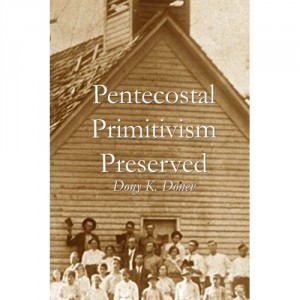
- The Forgotten Azusa Street Mission: The Place where the First Pentecostals Met
- Diamonds in the Rough-N-Ready Pentecostal Series (Complete)
- 95th anniversary of the Pentecostal movement in Bulgaria
- Toward a Pentecostal Solution to the Refugee Crises in the European Union
- Historical and Doctrinal Formation of Holiness Teachings and Praxis among Bulgarian Pentecostals
- Pacifism as a Social Stand for Holiness among Early Bulgarian Pentecostals
- The Practice of Corporate Holiness within the Communion Service of Bulgarian Pentecostals
- Sanctification and Personal Holiness among Early Bulgarian Pentecostals
- First Pentecostal Missionaries to Bulgaria (1920)
- Historical and Doctrinal Formation of Holiness Teachings and Praxis among Bulgarian Pentecostals
- The Everlasting Gospel: The Significance of Eschatology in the Development of Pentecostal Thought
- Online Pentecostal Academic Journals
- What made us Pentecostal?
- Pentecostalism and Post-Modern Social Transformation
- Obama, Marxism and Pentecostal Identity
- Why I Decided to Publish Pentecostal Primitivism?
- Historic Pentecostal Revival Tour in Bulgaria Continues
- The Land of Pentecostals
- Pentecostal Theological Seminary Address
- A Truly Pentecostal Water Baptism




